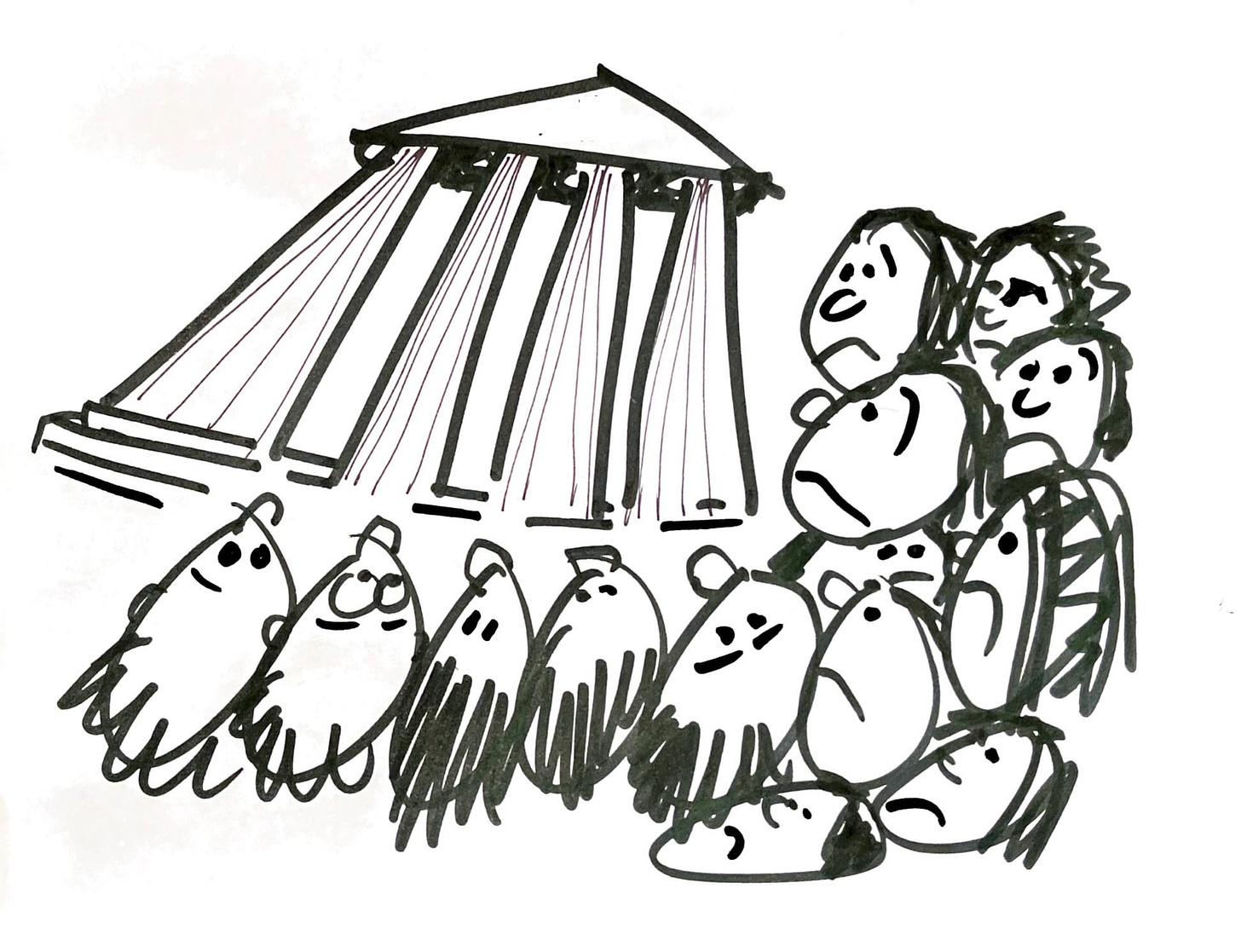Yesterday, the Supreme Court knocked down part of the wall between church and state with a ruling that’s likely to force taxpayers to fund religious indoctrination at Christian schools.
So, today’s questions:
(1) How much do you think the same conservatives championing this decision would freak out if they thought their tax dollars were being used to fund Islamic madrasas? And (2) if religious institutions can receive tax dollars and make partisan political endorsements, while receiving billions in income, shouldn’t they be stripped of their tax exempt status?
What do you think? Please comment below. (I’ll chime in as well.)
Excellent discussion. I’ve responded to many of your comments but let me add one of my own here: The First Amendment to the Constitution says "Congress shall make no law respecting an establishment of religion." That should be enough for a Supreme Court justice claiming to read only the plain words of the text. A Justice claiming to be an "originalist," seeking to know what was in the minds of the Framers, can view their writings, which repeatedly warned against an official religion or any dependence of a religion on government or dependence of government on any religion. The Framers knew English history and the damage wrought by wars and social upheavals over religion there; they were also aware of the religious intolerance of the Puritan era. They wanted to encourage a multiplicity of denominations, which meant erecting a wall between Church and State.
Yet the conservative majority on the current Supreme Court seems intent on taking a wrecking ball to the Establishment Clause by using the phrase that comes right after it --"… or prohibiting the free exercise thereof" against it. The Maine law in question in no way prohibits the free exercise of religion. It simply denies public money to religious schools, a far cry from a prohibition on the exercise of religion. Besides, if there's any tension between the two phrases — “make no law respecting the establishment” or “prohibiting the free exercise thereof” — shouldn't the justices defer to lawmakers on how to resolve the tension rather than substituting their own judgment? And if the law and the constitutional provision in question originate in a state, shouldn’t there be even more reason to defer?
I need a new word to describe the conservative majority rather than simply calling them "conservative." They're not conservative. They're the most activist court since the Warren court -- but instead of being activist to protect rights, they're activist to destroy rights.






















Share this post